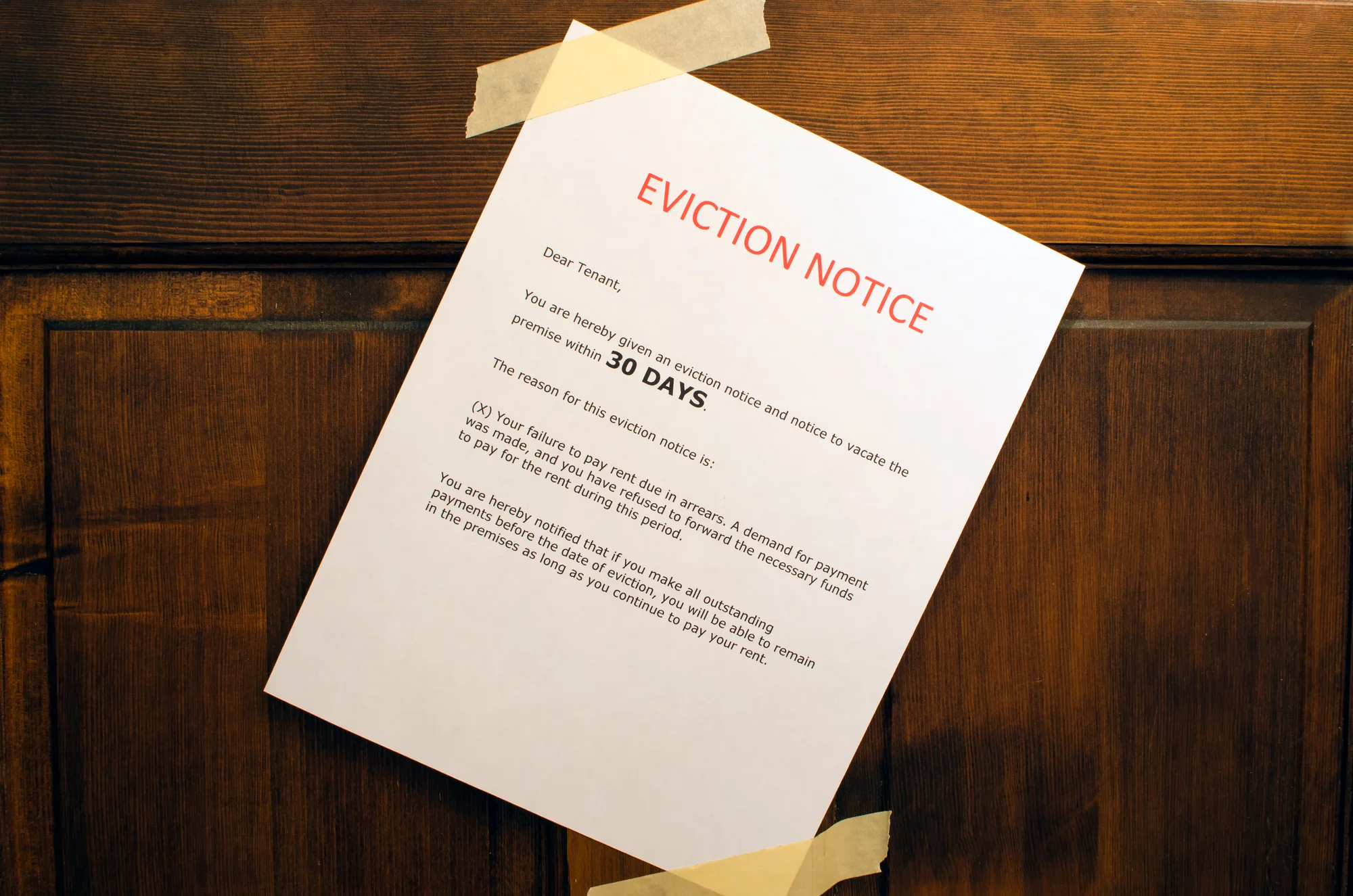Eviction is one of those subjects that owners and tenants dread and feel unsure about. When it comes down to it, if both the property manager or owner and the tenant adhere to the lease, then no worries for anyone. However, sometimes evictions become necessary. Miscommunication arise or people do not keep their word even if a signed contract is in place. This unfortunately, leaves all parties involved in an uncomfortable position. Eviction becomes necessary when the lease is not upheld by the tenant, and most often when the rent is not paid. Leases are in place to protect both the tenants and the property owners. If the lease is breached, then the Eviction process is in place to rectify the issues. It allows the tenants time to correct whatever the problem is, whether it be past due rents or needed repairs, and in the event the issues are not resolved in that time frame, it gives the tenant a certain amount of time to remove themselves and their items from the property.
Most states require a legitimate reason for eviction filing. These reasons might include, illegal activity, not paying rent, damage to the property, etc. The usual form filed is called an Application for Ejectment, but there are other ways to file. One way is an unconditional quit notice. This means that the owner is evicting the tenant without giving them a chance to fix the issue. Many notices allow you to remedy the situation in order for you to avoid eviction. However, if the tenant has repeatedly broken the lease or was involved with something such as drugs, then the owner has grounds to serve an unconditional quit notice. Which means the lease is being terminated and the tenant must remove themselves from the property immediately. If they do not, the landlord can open an eviction lawsuit.
Other types of notices involve, pay rent or quit notices and cure or quit notices. Pay rent or quit notices mean either pay the rent that is due or “quit” which means to move out and quit on the lease agreement. Cure or quit notices are when a tenant has violated the lease agreement and they are given a certain amount of time to remedy the violation (such as getting rid of an animal that didn’t meet lease guidelines) or they can quit (move). If a tenant does not choose either option with both of the notices previously listed, they can face an eviction lawsuit.
In most states, a landlord does not need to give notice to the tenant prior to filing the eviction. Most leases have a paragraph describing the eviction rules of a particular Landlord or Property Manager. Landlords must have cause to file. However, a tenant does have rights, and the tenant can request a court hearing and have their case heard in front of a Summary Court Judge. If a hearing is requested, their case will be heard and things can be sorted out. The judge can then make the decision as to who is at fault and what the remedy is.
There are consequences to having an eviction filed against you the tenant. Eviction notices can leave your renting record tarnished. If you ever wanted to buy property of your own, lenders often ask for a reference from previous landlords. So, if you are a tenant, read, understand and abide by your lease. If you are unsure of what your lease says about something, call the property manager to clarify.
If you are a landlord, have a clear and concise lease that does not leave room for a lot of questions. If you are fair and open with the tenant at the beginning of the lease, then most likely your tenants will respect you and there will be no problems during their tenancy.
Overall, eviction is a last resort action for most Landlords and Property Managers. Unfortunately, being a successful Property Manager does sometimes require these legal actions. It is always good to know the options if problems arise.





